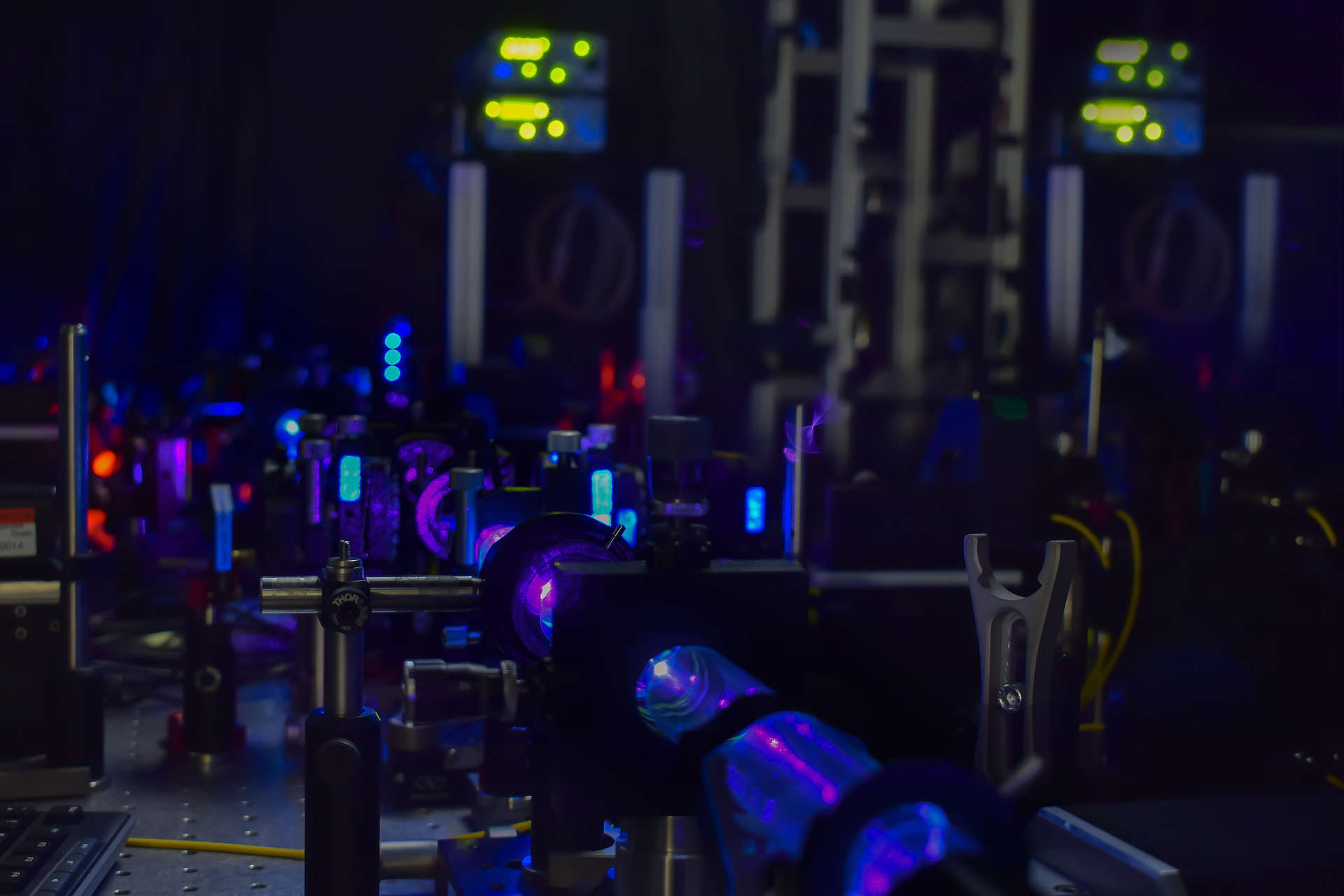CDG: As a former doctoral student, you know the work of Nobel Prize winner Zeilinger up close. In your view, what was the decisive new aspect of his work?
Walther: In essence, Prof. Zeilinger developed a new experimental approach which made it possible to efficiently generate entangled particles of light (called photons) and then use them for experiments to test the foundations of quantum mechanics. These entangled light particles know about each other: if the state of one photon is measured the outcome is random, but at the same moment, the state of the other photon is precisely defined. Zeilinger’s method opened the door for modern quantum photonics.Initially, it allowed for very clear proofs that quantum entanglement is a real physical phenomenon. Following this, it allowed for more precise investigations of quantum entanglement, laying the foundations for quantum technology and quantum information processing. Prof. Zeilinger’s research followed from the work of John Stewart Bell and Zeilinger's fellow Nobel laureates Alain Aspect and John Clauser.
CDG: And your research is building on this research?
Walther: As a PhD student, I was involved in the further development of this technology. My goal was to entangle more than two photons. This then allowed us to demonstrate a variety of “quantum applications,” including a photonic architecture for quantum computers. Since then, my research has been dedicated to experimental quantum information using photons, which I am currently pursuing with my group in Vienna. Between my PhD and my position back at the University of Vienna, I spent several years at Harvard University in the US. One of the primary focal points of my research is the generation of increasingly larger and more complex quantum states with more and more entangled photons. This allows us to probe a new level of “quantum weirdness," as Prof. Zeilinger calls it. In the CD Laboratory, we are developing fundamental photonic quantum technologies. We then investigate how these techniques can be used to process data as quickly and efficiently as possible. Our ultimate goal is to create a so-called "quantum computer” based on photonic devices.
CDG: For a CD Laboratory to be approved, at least one company must invest in the research. So fundamental research is already becoming tangible here?
Walther: The development of quantum technology takes a lot of patience. In spite of this, many of the big tech companies, from Google to IBM, are already investing in this research. These industrial partners believe that "something" will emerge from fundamental quantum research, and they know that they cannot afford to miss it. It is not a question of "will" something will be developed, but "when" it will be developed.
Our corporate partner, the Hong Kong based company Tencent Mobility Limited, sees potential in our approach with photons. Within the CD Laboratory, our first patents have already been filed and they prove the potential of our approach. As a scientist, I want to understand, as thoroughly as possible, how the quantum world works, I want to look behind the scenes. This coincides with the interests of our partner, who want to know as much as possible as early as possible, so that they can be at the forefront of quantum computing. The CD Laboratory offers an ideal framework for this collaboration and ensures that both sides benefit.
Philip Walther: "I want to look behind the scenes"
11.10.2022: On the occasion of his doctoral supervisor Anton Zeilinger being awarded the Nobel Prize, Head of Laboratory Philip Walther talks to us about the phenomenon of quantum entanglement and novel quantum technology.
Interviews
Univ.Prof. DI Dr. Philip Walther is Head of the CD Laboratory for Photonic Quantum Computer at the University of Vienna and a former doctoral student of Nobel Prize winner Anton Zeilinger.
Further information on the CD Laboratory
CD Laboratory for Photonic Quantum Computer
Head of research unit
Univ.Prof. DI Dr. Philip Walther
Universität Wien
Duration
01.07.2020 - 30.06.2027

